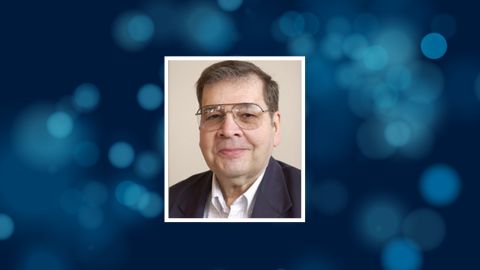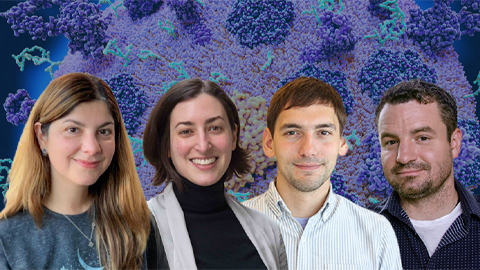Garcia uses mass spectrometry
to unravel the human epigenome
When Benjamin Garcia was introduced to mass spectrometry as an undergraduate researcher in Carlito Lebrilla’s lab at the University of California, Davis, he thought it was an “interesting and useful analytical technique,” he said. Little did he guess the central role it would play throughout his research career.

“Lebrilla was an amazing mentor,” Garcia said. “Despite my limited knowledge in analytical chemistry, he treated me like a regular member of the group. I had the opportunity to collaborate with different researchers and meet future mentors. I enjoyed the scientific discovery process and decided to apply to graduate school.”
His timing could not have been better. In the early 2000s, the human genome just had been sequenced, and Garcia became interested in investigating the various proteins encoded by genes.
“Proteomics research was in its infancy, and MS opened up a lot of opportunities to explore the area,” he said. His interest in the subject led him to pursue doctoral research with Don Hunt at the University of Virginia.
Under the guidance of Hunt, whom he described as “brilliant and visionary,” Garcia studied tandem mass spectrometry of complex biological mixtures. By the time he earned his Ph.D. in chemistry in 2005, he was fully immersed in the field of proteomics.
“And after that, there was no looking back,” he said with a laugh.
Over the years, Garcia has established himself as a leader in mass spectrometry and proteomics. He serves on the editorial boards of several scientific journals, including Molecular & Cellular Proteomics, and has received numerous awards, including the Presidential Early Career Award for Scientists and Engineers.
Excited by the progress being made in large-scale omics, Garcia said he hopes scientists can apply their knowledge to eventually “reprogram a diseased epigenome” in various diseases.
Besides his regular responsibilities as a professor at the University of Pennsylvania, Garcia develops programs that support diversity and underrepresented minority scientists at the university. As the leader of a large and productive research group, he believes mentorship is a key aspect of scientific discovery.
“As a PI, the most enriching experience has been training and mentoring researchers from different walks of life,” he said.
Advanced MS approaches to elucidate the “diseased” epigenome
Benjamin Garcia’s research group has developed novel methodologies for MS analysis of histones for application in post-translational modifications and systems epigenetics. Their most recent approach shows promise in the analysis of isolated histones from human clinical samples. Advantages over standard proteomics experiments include its quicker sample run time and improved quantification.
The group has used MS for high-throughput global profiling of histone post-translational modifications to better understand several cellular mechanisms and diseases. For example, they recently unraveled how recurrent loss-of-function alterations in polycomb-repressive complex 2, a histone-modifying complex, drive the formation of cancer cells in malignant peripheral nerve sheath tumors, an aggressive sarcoma.
The group’s findings will help identify several epigenetic targets. The long-term goal is to treat diseases with histone-modifying enzymes or targeted small-molecule inhibitors.
Enjoy reading ASBMB Today?
Become a member to receive the print edition four times a year and the digital edition monthly.
Learn moreGet the latest from ASBMB Today
Enter your email address, and we’ll send you a weekly email with recent articles, interviews and more.
Latest in People
People highlights or most popular articles

In memoriam: Ralph G. Yount
He was a professor emeritus of chemistry and biochemistry at Washington State University and an ASBMB member for 58 years.

From dust to discovery
From makeshift classrooms in Uganda to postdoctoral research in Chicago, MOSAIC scholar Elizabeth Kaweesa builds a legacy in women’s health.

Fliesler wins scientific and ethical awards
He is being honored by the University at Buffalo and the American Oil Chemists' Society for his scientific achievements and ethical integrity.

Hope for a cure hangs on research
Amid drastic proposed cuts to biomedical research, rare disease families like Hailey Adkisson’s fight for survival and hope. Without funding, science can’t “catch up” to help the patients who need it most.

Before we’ve lost what we can’t rebuild: Hope for prion disease
Sonia Vallabh and Eric Minikel, a husband-and-wife team racing to cure prion disease, helped develop ION717, an antisense oligonucleotide treatment now in clinical trials. Their mission is personal — and just getting started.

ASBMB members recognized as Allen investigators
Ileana Cristea, Sarah Cohen, Itay Budin and Christopher Obara are among 14 researchers selected as Allen Distinguished Investigators by the Paul G. Allen Family Foundation.

